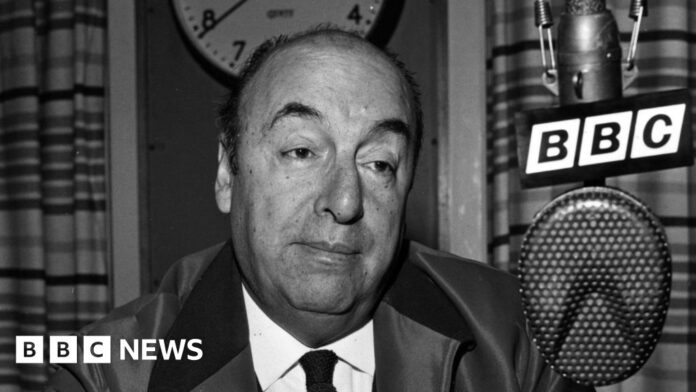Half a century after he died and 12 years after allegations first surfaced that he was murdered on the orders of the dictatorship of Gen Augusto Pinochet, the death of Chile’s most famous poet, Pablo Neruda, remains shrouded in mystery.
An investigation into it has run for more than a decade and has yet to reach a conclusion. Forensic experts in Canada, Denmark and elsewhere have pored over the poet’s remains in a bid to establish what killed him, but have been unable to provide a definitive answer.
Meanwhile, the man who first made the allegation – the poet’s former driver and personal assistant, Manuel Araya – himself died in June this year, aged 77, without ever seeing an end to the case.
“We need clarity,” Neruda’s nephew Rodolfo Reyes told the BBC in a recent interview. “The ball is in the court of the judge who’s investigating the case and we’re all waiting for her to make a declaration.”
Neruda, who won the Nobel Prize for Literature in 1971 and was famed for his love poetry, died 50 years ago this weekend, on 23 September 1973, just 12 days after the military coup that brought Gen Pinochet to power. He was 69.


